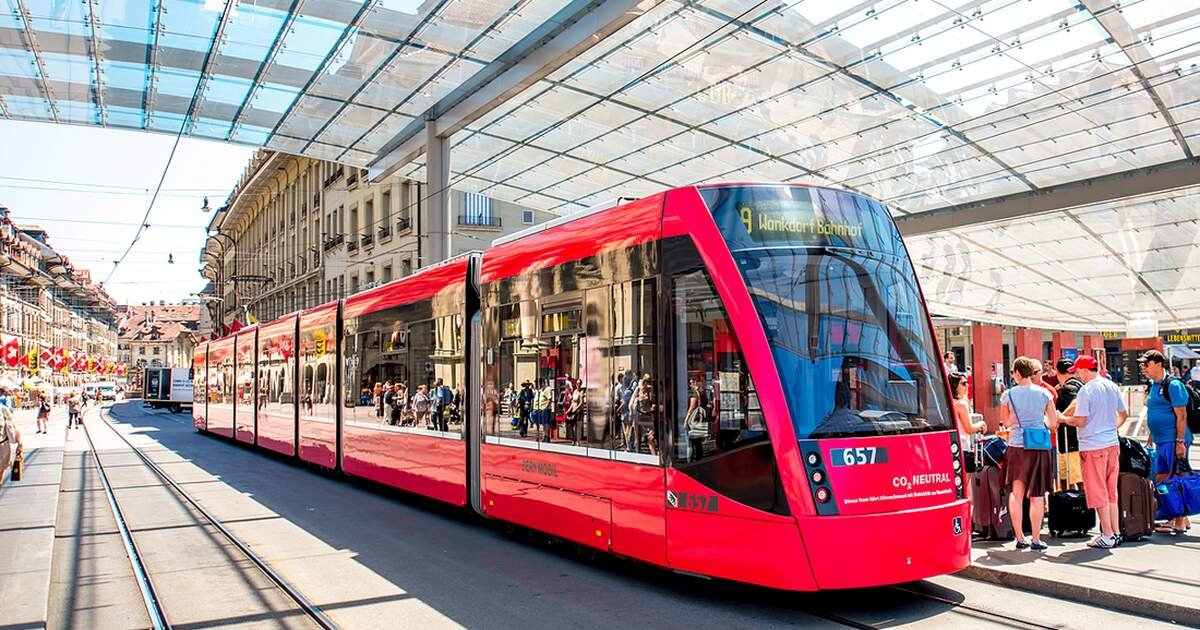Bay Area transit leaders to visit Switzerland to learn about seamless transit
Eleven Bay Area public transportation leaders from public agencies and advocacy organizations will travel to Switzerland next week to study how the country organizes, coordinates, and funds its world-renowned seamless public transit system.
We’re excited to announce that Seamless Bay Area Policy Director Ian Griffiths will be part of the study delegation. Ian will post lessons and insights from the tour to the Seamless Bay Area blog throughout next week. Key staff and policymakers from MTC, SFMTA, BART, Caltrain, AC Transit, VTA, the San Francisco Bay Ferry, SPUR, and the federal government will also participate in the visit.
The Bay Area representatives will have the opportunity to learn directly from Swiss experts working at agencies, in local, regional, and state governments, and in the private sector, about what practices and organizational structures make transit a success, and which may be able to be adopted in the Bay Area.
Specific topics covered by the study tour will include:
The evolution of Switzerland’s regional and federal governance system for coordination
Service-based transit network planning
Stations and capital projects
Customer Experience
Emerging public transportation technologies and innovation
Experience with voter ballot measures to fund transportation improvements
The visit is being funded by Presence Switzerland, a division of the Swiss Government that seeks to promote Switzerland around the world.
The idea of the study delegation originated with Seamless Bay Area’s organization of a virtual conference in February 2022 about Swiss public transit practices, SwissCal, which over 80 California policymakers participated in. SwissCal generated significant interest in learning more about Switzerland’s effective system, including getting a more in-depth understanding of how it functions. Seamless Bay Area published blog summaries of the SwissCal Sessions 1, 2 and 3, and summarized key findings on next steps in a Final Report.
After positive feedback from the participants of SwissCal about the potential value of an in-person study tour, the Swiss Consulate General of San Francisco worked with Seamless Bay Area to develop a proposal for a delegation visit to meet directly with experts and experience the system first-hand.
Over the past several years, San Francisco Bay Area transit agencies have set out an ambitious agenda of transit transformation, with the goal of rebuilding transit in the post-pandemic era as a connected, improved system that is more convenient and accessible. The region’s Transformation Action Plan, adopted in 2021 by the region’s Blue Ribbon Transit Recovery Task Force, identifies goals to integrate fares, mapping and wayfinding, and service across the region’s 27 transit agencies. It also lays out steps to improve accessibility, reform governance, and identify new sources of regional transit funding through a regional ballot measure initiative.
Carrying through with the Transformation Action Plan is seen by many as critical to ensuring accountability for one-time state funding for transit being considered by state legislators to address the “fiscal cliff” facing transit agencies.
Switzerland, a country of 8.6 million - slightly larger in population than the Bay Area’s 7.7 million - has much to teach the Bay Area in realizing its vision for transformaiton. It excels in delivering seamless, integrated transit across a country with many jurisdictions and transit operators. The country has 458 transportation companies, including 80 railway companies - and yet, owing to its governance and funding structures, Switzerland provides integrated transit fare products, coordinated schedules, and high levels of service to riders. The country has one of the highest rates of public transit use in the world, with 21% of all trips on public transit, compared to just 5% in the Bay Area.
Table from 2022 SwissCal conference, showing Switzerland’s impressive transit ridership compared to the Bay Area and Southern California.


